- Home
- Madeleine L'engle
Camilla Page 6
Camilla Read online
Page 6
“Listen, I’m hungry,” Frank said suddenly. “Have you eaten?”
“No.” I was grateful to him for changing the subject.
“We could go back to the apartment and dig something out of the icebox, only I’m afraid Mona’ll still be there, and Luisa’ll come blundering in anytime now, anyhow.” He fished in his pockets. “I’ve got about a dollar. That’ll give us each a hamburger and a milkshake. Wish I hadn’t wasted a quarter on that putrid movie.”
“I can pay for mine,” I said.
Frank put the coins back into his pocket and then he took his hands and put them on my shoulders and said, “Listen, Camilla, you know what this is? This is a date. A dinner date. We’ll go to Nedick’s and pretend it’s the Persian Room at the Plaza. Okay?”
“Okay,” I said.
We had a lovely time at Nedick’s. There was an old woman sitting next to us drinking that awful orange stuff and I think she’d been drinking something else before that because every few sips she would throw back her head and sing, and then she’d give a running commentary on the song and the people in Nedick’s; and one of the men kept threatening to throw her out if she didn’t keep quiet. Frank and I pretended the old woman was Hilde garde singing in the Persian Room at the Plaza, and the old woman loved it; I think perhaps she’d been an actress once upon a time.
She was so happy because we were laughing and paying attention to her that you couldn’t mind about her being drunk, and Frank said, “Sing some Noël Coward for the young lady, Hildegarde,” and she shook with laughter and said, “Noël Coward. Now, there was an interesting man, dearie. I met him one day down at the Battery when he was writing the weather reports. You’ve never heard weather reports like he wrote. Better than singing commercials,” and then we all laughed and laughed, and then she started singing “Cockles and Mussels,” which seemed to be her favorite song.
We took as long over our hamburgers and hot chocolate as we possibly could, and the old woman had one small orange drink after another; but finally Frank and I had to go, so we left her there, drinking her drink and singing “Cockles and Mussels.”
Frank took me to the subway and I thought he was going to take me home, but he said, “I’m sorry I can’t ride back with you, Camilla, but I promised David I’d go see him this evening and it’s so late already, I’m afraid he’ll think I’ve forgotten him. David’s a veteran. He lost both his legs in the war.”
“Oh,” I said. We stood there at the mouth of the subway for a moment and then I said, “Thank you for the dinner and everything,” and Frank took my hand in his and held it, and then I turned and ran down the subway stairs.
All the way home I thought about the way he had told me I was beautiful, and the way he had put his hands on my shoulders and told me we were having a date, and the way he had held my hand when we said good-bye; and for the first time growing up seemed something pleasant to me. Luisa can’t wait to grow up and go to medical school and everything, but I’ve kept having the feeling that if I weren’t growing up, everything would be all right with Mother and Father, and Jacques would never have happened.
Once Luisa asked me, “Do you think Jacques is the first one?”
“The first what?”
“Now, Camilla,” Luisa said, “don’t pretend to be dumber than you are. You know perfectly well what I mean.”
So I said, very firmly, “Yes.”
And Luisa said, “I hope you’re right, Camilla. I sincerely hope you’re right,” and shook her head in a way that reminded me of Mona. But I knew that I was right. Before Jacques started coming to the apartment everything was all simple and easy; now it is all complicated and difficult.
Before Jacques. After Jacques. I seemed to label everything like that.
But it was a funny thing: while I sat there in the subway on my way home I began to wonder for the first time if Jacques was really the only reason that everything seemed changed, or if he was only, as Luisa would say, the symptom and not the disease. Even before I was really aware of Jacques, things seemed somehow different; sitting there and looking at an ad for corned-beef hash, I had to admit that.
Just the little unimportant things, walking alone down on the beach in Maine on the long summer evenings; tea parties all alone with Mother when we pretended to talk together like two grown-up ladies having tea; sitting very quietly in Father’s study while he read his paper and had his cocktail— it was things like these that were beginning to lose their glory before I had even heard of Jacques. And there was the miserable dull aching in my limbs that Mother called growing pains as she gently massaged my legs—but that was also an ache in my heart. Does the heart grow as well as the limbs? Nobody can rub your heart for you to ease the discomfort. That pain had nothing to do with Jacques. It was just easy to blame Jacques, to hate him, for everything.
I wished Frank had not left me at the top of the subway stairs to go see David—though I knew that was selfish and bad of me. Somehow, now, I could not think of the lovely time I had had with Frank but only of the fact that I did not want to be on my way home.
3
THE MOMENT I PUT MY KEY in the latch and opened the door of our apartment I knew that something terrible had happened. All the lamps were on and the place seemed full of a light as sharp and cruel as the light in an operating room. I heard feet running back and forth and then I heard my mother scream and I thought, Father is murdering her, oh God, Father is murdering her; and I went running through the apartment to my mother’s room. It was full of people: Father and Dr. Wallace and Carter and the cook, and Mother was flinging herself about on the bed and screaming and Father and Carter were trying to hold her down and there was blood all over the bed.
The cook saw me and cried, “Here’s Miss Camilla.”
My father said, “Get her out of here.”
Dr. Wallace said to the cook, “Get me some boiling water.”
The cook pushed out into the hall, taking me with her, and we went into the kitchen and she splashed hot water into the kettle, spilling half of it on the floor, and slopped it onto the stove, turning on the gas, high.
And I thought, Somebody came in time. Somebody came in time to stop Father. And I thought of the newspapers Carter reads, with pictures of women with battered heads on bloody kitchen floors and women lying in satin-quilted beds with bullets through their hearts; and I remembered Carter’s eager expression as she reads the headlines—SEX MURDER ON PARK AVENUE or MAN KILLS WIFE AND LOVER IN PENTHOUSE RENDEZVOUS, or whatever it might be—and then I saw her face as she tried to hold my mother down, and it looked exactly the same way, only now it was a little frightened too.
“Miss Camilla,” the cook said, turning from the stove, and she looked at me with her round face wrinkled up in puzzlement. I thought that all this must be very frightening for poor Mrs. Wilson when she’d only been with us such a short time and didn’t know us very well. Now I saw that she did not know what to say to me, and that she was unhappy because I had come home and run into Mother’s room when I did; I knew it would make her more unhappy if I asked her what had happened, so I just stood there in the kitchen doorway and stared hard at the knob on the stove that turns on the oven. I stood there until the water began to boil and she lifted it off the stove, and then I moved out of the doorway and stood just inside the dining room.
“Poor lady,” Mrs. Wilson said. “Poor Mrs. Dickinson.” She went by me with the steaming kettle, saying, “You’d better wait here, Miss Camilla, and I’ll come right back to you.”
I waited and listened. Now there was hardly any sound from the direction of Mother’s room. She had stopped screaming and I wondered quite calmly if she had died. I could be calm about it because it was such an impossible thought that it didn’t really seem to have anything to do with me, Camilla Dickinson, personally.
Now the apartment was terribly quiet; then through the quietness came the telephone ringing with frightening shrillness. I ran through the dining room out into the hall to answer it
. “Hello,” I gasped.
“Hello, Rose?” the voice on the other end of the wire said.
“No.”
“Who is this? May I speak to Mrs. Dickinson?” the voice asked, and I knew that it was Jacques’s voice.
“No,” I said.
“Who is this? Is it Camilla?”
“Yes.”
“Camilla, I want to speak to your mother.”
“No.”
“Camilla, is anything wrong? Where’s Rose?”
I couldn’t think what to say. Jacques’s calling just then was as shocking as though he had actually picked up the telephone and struck me with it; and I stood there holding the receiver while the silence seemed to stretch from one end of the wire to the other.
Finally Jacques said, “Camilla, I see that I must talk to you. I’m coming over.”
“No,” I said then quickly. “You can’t come. You mustn’t come.”
“Then you come and see me,” he said. “I’ll meet you somewhere. Wherever you say.”
“No,” I said. “I can’t.”
“Camilla,” Jacques said, “I’m sure you’ve seen and understood far more than Rose and I realized—about the way we feel about each other. Won’t you let me talk to you for a few minutes? For your father’s sake as well as Rose’s and mine.”
“I can’t now,” I said. “I just can’t.” I strained my ears wildly for any noise that might come from the silence of my mother’s room.
“Tomorrow, then,” Jacques said, making his voice very pleading. “Tomorrow when you’re through school.”
“All right, tomorrow,” I said, not hearing myself agreeing, just saying anything so that I could hang up the phone and listen.
“Will you come to my apartment?” Jacques asked. “We can talk more comfortably there than anywhere else. You’re still too young for bars, aren’t you, little one? I’ll expect you at my apartment, then, right after school.”
“All right,” I said. “All right.” And I clamped the telephone receiver back into the cradle.
I heard the door of my mother’s room open and shut and Carter in her cold gray uniform came up to me as I stood there by the telephone and said, “Your mother wants to know who was on the telephone, Miss Camilla.”
“Luisa,” I lied quickly, and sat weakly down. If Mother wanted to know who was on the telephone then she couldn’t be dead. Carter turned around and disappeared and I heard the door to Mother’s room open and shut, and I just sat there until it opened again and Mrs. Wilson came out and went back to the kitchen and then Carter and Dr. Wallace came out into the hall and Carter held out Dr. Wallace’s coat for him and handed him his hat.
Dr. Wallace said, “Good night, Carter. Miss Camilla will let me out,” and Carter went back into the kitchen. I knew she would be there, trying to listen, and I hoped that perhaps Mrs. Wilson might talk to her, to keep her from hearing anything.
“Put on your coat and hat, Camilla,” Dr. Wallace said. “We’ll go out together and have a cup of coffee, and then your mother will want to see you.”
I fumbled into my coat, and my hands suddenly seemed so cold and numb that I couldn’t get the buttons through the buttonholes; so Dr. Wallace buttoned my coat for me, and took my beret and put it on, saying, “There. That may not be just the fashionable angle, but it looks very nice. I like your red beret and navy blue coat, Camilla,” and he smiled at me very kindly. I knew that he was sorry for me and I wanted more than anything in the world to have him not be sorry for me; and I realized what a terrible thing it is to be pitied.
For the first few minutes in the drugstore Dr. Wallace just sat and looked at his coffee and said nothing. We have known him for a long time. When I first remember him he was thin with a lot of thick brown hair. Now he has quite a large stomach and not so much hair.
I sat there and watched him put sugar and cream into his coffee and waited for him to speak; and while I waited I felt almost peaceful because before this moment it had seemed to me that I ought to be able to do something about everything, and now he had taken all responsibility away from me. He seemed serious and when he looked up at me his eyes were probing.
“Camilla,” he said at last, “you’re going to be a very beautiful woman someday.”
This was not at all what I had expected him to say, and I looked so startled that he laughed.
Then he said, “Beauty carries with it a great responsibility, Camilla. A beautiful person should also be a strong person, but many people use their beauty as an excuse for weakness. I’ve known you since you were small, Camilla, and I think that you can be strong if you want to, and I hope you’ll want to.”
“I’d like to be strong,” I said, though I didn’t know what he was driving at.
Perhaps he didn’t either, for he said suddenly, “Sometimes when things get too much for people they try to solve their problems by trying to get out of everything altogether. It’s not a very good way and fortunately it doesn’t always work. Camilla, I think you’re old enough and strong enough to face facts. Your mother tried to take her own life tonight.”
Sitting there in the steam-heated drugstore, with my navy blue coat still buttoned, I began to shiver. I put my hands on my lap and clenched them to try to stop their shaking, but my body shivered and under the table my legs trembled.
“Let’s walk a little,” Dr. Wallace said. He put some money on the counter and we left the drugstore and began to walk down Madison Avenue.
“Your mother’s really still a child,” Dr. Wallace said as he walked. “She’s loved and adored you, but you’ve been more like a wonderful doll than a child to her. You know that marvelous doll that you’re giving to your friend Luisa? Your mother would have loved that doll.”
“How did you know about the doll?” I asked.
“It’s odd, the things a person will talk about when she’s hysterical and overwrought. Your mother talked about the doll tonight. Camilla, I wish I could pretend for you that nothing has happened, but I can’t. You must just thank God that your father came home when he did, and that I was already on my way to your apartment. Go home to her and love her and be very strong, because she needs strength, and strength, like fear, is contagious.”
We turned around then and walked home and Dr. Wallace took me up in the elevator. The elevator boy grinned at me and I wondered if he knew that anything had happened. Dr. Wallace left me at the apartment door and I went in alone. I walked through the apartment until I got to my mother’s room. The lamp by the bed was on and she was lying there, asleep. My father sat on a low chair by the bed and his head, dark as an ink stain, was down on the blanket close to Mother, and he was asleep too. Mother looked very white and both her wrists were bandaged in neat white bandages. I stood looking at them for a moment, and then I started to tiptoe out of the room; but, as I turned, my mother opened her eyes and held out her arms to me, and I ran to her and she hugged me and said, “Oh, Camilla, Camilla darling, forgive me,” and my father woke up then and the three of us were a tangle of arms and we were full of love and close, close, and I thought, Nothing can ever push us apart again.
I kissed them and I went into my room and undressed and fell into a deep sleep black as velvet and when I woke up it was daylight and I ran into my parents’ room and they were lying in bed holding each other close and they smiled at me, and my mother said, “Darling, do you forgive me?”
And my father said, “It was all my fault; it was all my fault,” and I left them, each trying louder than the other to take the blame.
On the breakfast table I found two books my father had heard me mention wanting. Carter said, “Your father told me these books were for you, Miss Camilla. I think he brought them home last night. I suppose the poor dear man was too upset to give them to you then.”
I looked at Carter but I did not say anything and I ate my breakfast in silence with Carter hovering over me and looking terribly important and knowing; and then I called goodbye to my parents and left for school. And I was h
appy because I thought that now Jacques was out of the apartment and out of our lives forever and everything would be as it used to be.
Luisa was already in the classroom when I got there and she said in a cold voice, “So.”
“So what?” I said, and at her unexpected anger my happiness fled.
“You know what I’m talking about,” Luisa told me and pressed her lips together thinly.
“I haven’t the faintest idea,” I said, and I sat down at my desk and opened the lid and began tidying it. I put all my pencils and pens in my pencil box and arranged my books in neat piles, and Luisa stood by me, scowling ferociously and waiting for me to say I was sorry or ask her what was wrong; and I didn’t say anything at all.
Finally she said, “You went out with Frank yesterday evening.”
“Yes,” I said. “Why not?”
“But you didn’t come by the apartment afterward.”
“It was late and I had to get home.”
“But you’re my friend!” Luisa said.
I shut my desk lid firmly. “That doesn’t mean I can’t be friends with Frank too.”
Luisa scowled ferociously. “Frank isn’t good for you.”
“Oh, shut up,” I said.
And then, right there in the classroom, with other girls coming in and out, Luisa burst into tears. It was the first time I had ever seen her cry. I had seen her nearly cry lots of times; but always by stamping, or walking about, or talking in a loud voice, she had been able to stop herself. Now she stood there with her face all screwed up and said, “Oh, golly, somebody’ll see me!”
“Stop crying,” I said. “Stop crying at once!” I stood up and banged my desk lid for emphasis.
Luisa went over to her desk and lifted up the lid and shut it down on her fingers so hard that the pain in her fingers made her forget everything except the pain and she was able to stop crying. Then she said, “Camilla, what’s wrong? I’ve never seen you like this before.” Her voice was small and hurt.

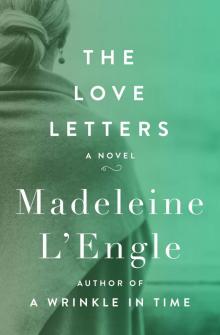 Love Letters
Love Letters The Summer of the Great-Grandmother
The Summer of the Great-Grandmother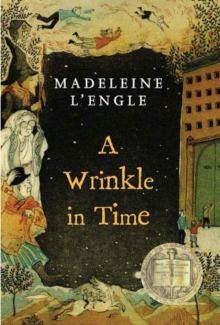 A Wrinkle in Time
A Wrinkle in Time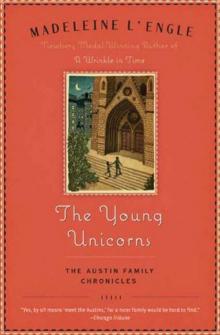 The Young Unicorns
The Young Unicorns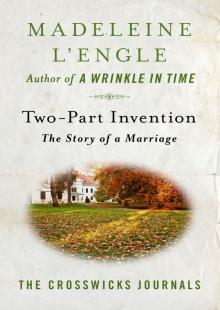 Two-Part Invention: The Story of a Marriage
Two-Part Invention: The Story of a Marriage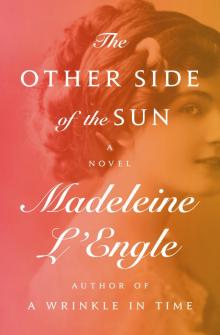 The Other Side of the Sun
The Other Side of the Sun A House Like a Lotus
A House Like a Lotus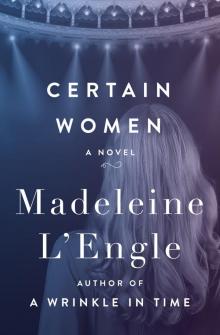 Certain Women
Certain Women Many Waters
Many Waters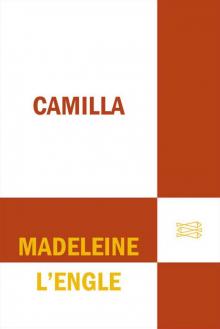 Camilla
Camilla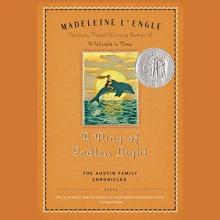 A Ring of Endless Light
A Ring of Endless Light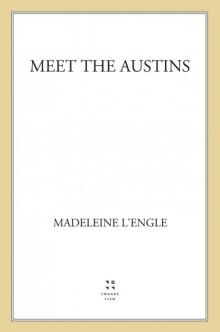 Meet the Austins
Meet the Austins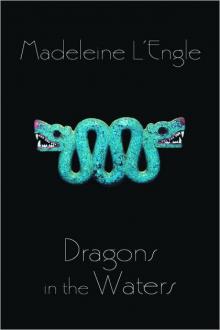 Dragons in the Waters
Dragons in the Waters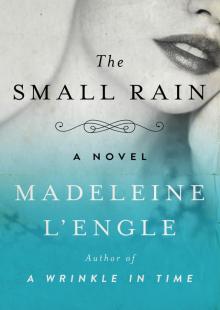 The Small Rain
The Small Rain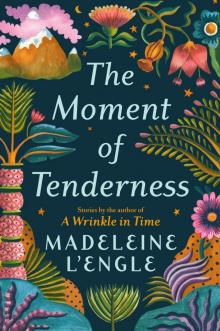 The Moment of Tenderness
The Moment of Tenderness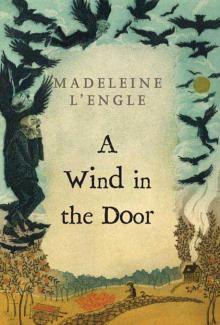 A Wind in the Door
A Wind in the Door Miracle on 10th Street
Miracle on 10th Street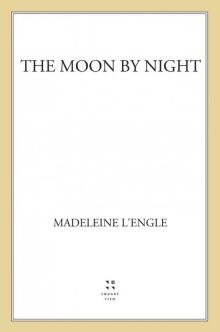 The Moon by Night
The Moon by Night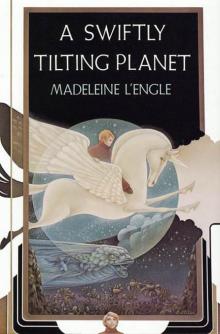 A Swiftly Tilting Planet
A Swiftly Tilting Planet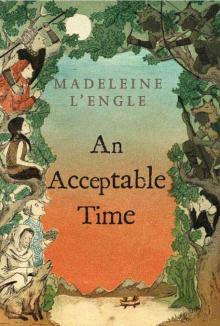 An Acceptable Time
An Acceptable Time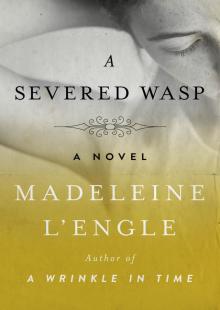 A Severed Wasp
A Severed Wasp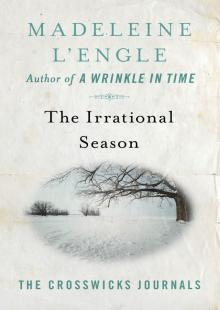 The Irrational Season
The Irrational Season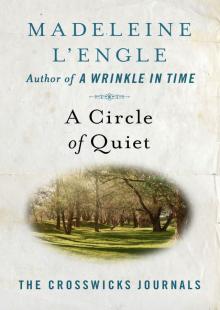 A Circle of Quiet
A Circle of Quiet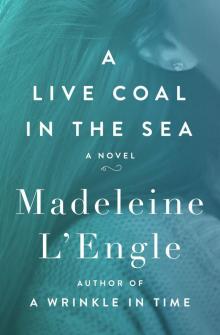 A Live Coal in the Sea
A Live Coal in the Sea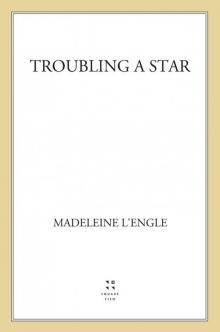 Troubling a Star
Troubling a Star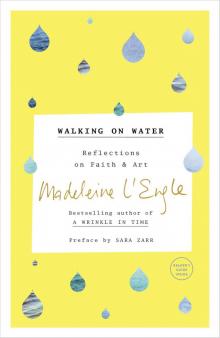 Walking on Water: Reflections on Faith and Art
Walking on Water: Reflections on Faith and Art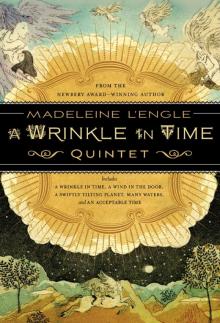 A Wrinkle in Time Quintet
A Wrinkle in Time Quintet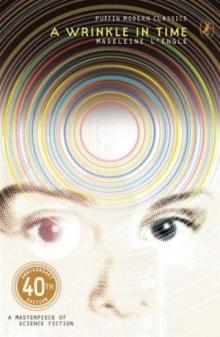 Wrinkle in Time
Wrinkle in Time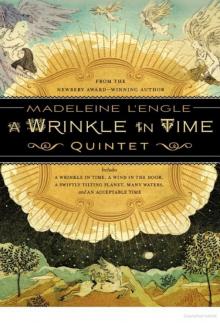 The Wrinkle in Time Quintet
The Wrinkle in Time Quintet Intergalactic P.S. 3
Intergalactic P.S. 3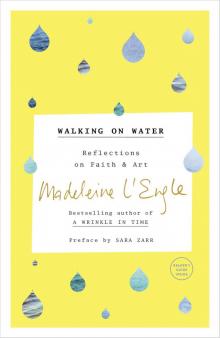 Walking on Water
Walking on Water Bright Evening Star
Bright Evening Star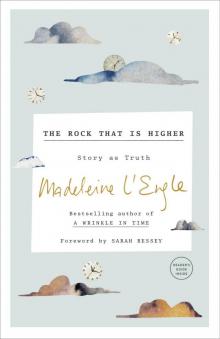 The Rock That Is Higher
The Rock That Is Higher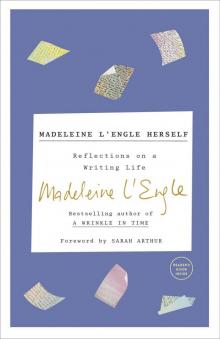 Madeleine L'Engle Herself
Madeleine L'Engle Herself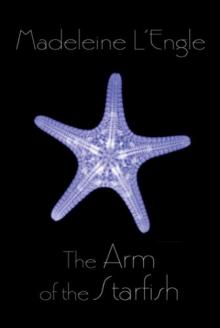 The Arm of the Starfish
The Arm of the Starfish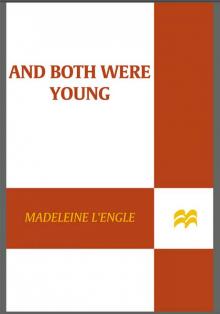 And Both Were Young
And Both Were Young The Twenty-four Days Before Christmas
The Twenty-four Days Before Christmas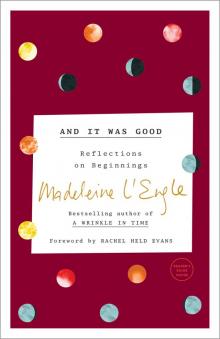 And It Was Good
And It Was Good A Stone for a Pillow
A Stone for a Pillow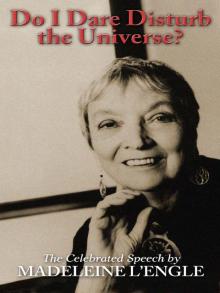 Do I Dare Disturb the Universe?
Do I Dare Disturb the Universe?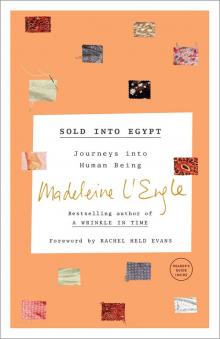 Sold into Egypt
Sold into Egypt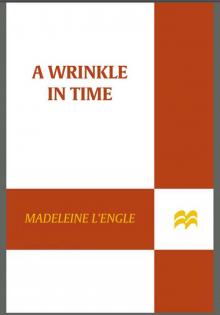 A Wrinkle in Time (Madeleine L'Engle's Time Quintet)
A Wrinkle in Time (Madeleine L'Engle's Time Quintet)